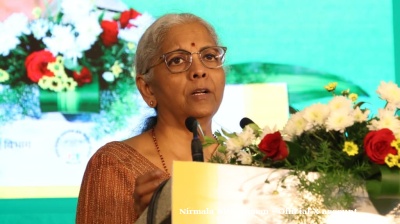Japan’s foreign population continues to grow rapidly, reaching over 3.7mn by the end of 2024. But many individuals with foreign roots are raising their voices about discriminatory treatment, particularly racial profiling by the police. Recent lawsuits and public discussion are shedding light on long-standing practices that many feel contradict Japan’s need for a more inclusive society.
Growing numbers, limited acceptance
In March 2025, Kyodo News reported that the number of foreign nationals in Japan had increased by 10.5% from the previous year. Of the 3.77mn residents, the largest groups by nationality were Chinese (around 873,000), Vietnamese (634,000), and South Koreans (409,000). Around 456,000 people were participating in the technical intern programme, which is designed to transfer skills to workers from developing countries.
Despite these figures, many foreign residents feel they are treated with suspicion. Zain Syed, a naturalised Japanese citizen originally from Pakistan, has been stopped by police over 15 times. Even after showing proof of his Japanese nationality, he was repeatedly asked to present a foreign resident ID or passport. In January 2024, Syed joined two others in filing a civil lawsuit against police in Tokyo and Aichi Prefecture, as well as the national government, seeking JPY3.3mn each in damages.
Evidence of racial profiling
A 2025 survey by the plaintiffs' legal team found that over 71% of obviously foreign nationals who had lived in Japan for more than five years had been questioned by police on the street, according to Kyodo News. This rate is 5.6 times higher than that for Japanese citizens. The survey compared responses from 422 foreigners and 521 Japanese people, excluding respondents from Northeast Asia to account for physical similarities with Japanese citizens.
Lawyers noted that despite the difference in police questioning, the actual rate of criminal investigations was nearly identical. According to government data, in 2020, 182,582 people were investigated for Penal Code offences. Of those, 9,529 were foreigners. With a population of over 123mn, including 6.34mn foreigners, the investigation rate was 0.15% for both groups.
Maurice Shelton, another plaintiff in the lawsuit and a US citizen living in Kanagawa Prefecture, has also been stopped 17 times since moving to Japan in 2010. Shelton, who runs a personal training business, said his appearance and dreadlocks often trigger suspicion. He compared the treatment to his past experience in the United States, where he was harassed by police and once had a gun pulled on him. Shelton said he left the US to escape such discrimination and did not expect to face it again in Japan.
Institutional and public responses
According to Kyodo News, The National Police Agency issued an advisory in December 2021 urging officers not to base stop-and-search decisions solely on someone’s appearance or clothing. This came after a viral video posted by advocacy group Japan for Black Lives showed police in Tokyo telling a mixed-race man that people with dreadlocks often carry drugs. The incident drew widespread criticism online.
A subsequent internal review by the agency found six inappropriate cases in four prefectures. In one, officers justified stopping someone by saying it was unusual for a foreigner to drive. As a trial measure, police officers have begun using body cameras to record public questioning in an effort to improve transparency.
However, public awareness remains limited. Naomi Kawahara, founder of Japan for Black Lives, said many Japanese citizens dismiss complaints from foreigners as paranoia. Some argue that those who have done nothing wrong should have no problem being stopped. Kawahara believes that change will only come through empathy and open dialogue.
Political pressures and mixed messages
In July 2025, Prime Minister Shigeru Ishiba launched a Cabinet Secretariat office to coordinate government responses to issues involving the foreign population. Staffed by 80 officials, the office works with agencies including the Immigration Services Agency and the Health Ministry. While Ishiba acknowledged that foreign workers are essential to economic growth, he also called for stricter responses to rule violations and revisions to outdated systems.
At the same time, nationalist rhetoric has gained visibility in political discourse. Kyodo News reported that Naoki Hyakuta, leader of the Conservative Party of Japan, made controversial remarks during a campaign speech. He claimed foreign workers disrespect Japanese customs, commit crimes, and steal from citizens. He also criticised burial practices common among some foreign groups, insisting on the norm of cremation in Japan. Many observers view these comments as inflammatory and discriminatory.
The ultraconservative Sanseito party has also gained support with its “Japanese First” slogan, calling for tighter immigration rules and a reduction in foreign investment. Party leader Sohei Kamiya blamed foreign capital and globalisation for Japan’s economic struggles. Meanwhile, the Health Minister was forced to deny a viral claim that foreigners owed JPY400bn in unpaid social security contributions, although he said the issue would still be investigated.
Strict immigration and refugee policies remain
Japan’s refugee approval process continues to be among the most restrictive in the world. In 2024, only 190 individuals were granted formal refugee status. However, a new “complementary protection” programme, introduced in December 2023, allowed 1,661 people—mostly Ukrainians—to obtain long-term residency due to conflict in their home countries. Another 335 individuals received residence permits on humanitarian grounds.
Japan’s revised immigration law, which came into effect in June 2024, allows for the deportation of individuals who have applied for asylum more than three times. Seventeen people were deported under the law by the end of the year. However, in 476 cases, asylum seekers were permitted to live in the community under supervision instead of being detained in immigration facilities.
The path forward
As Japan faces deepening labour shortages, its reliance on foreign workers is unlikely to diminish. But the country’s legal, political, and cultural frameworks are struggling to keep pace. While individuals like Syed and Shelton fight for recognition and dignity, the broader challenge lies in reconciling Japan’s economic needs with fair treatment of those who help meet them.
This, however, is not a one-sided effort. Just as Japan must address systemic biases and build a more inclusive society, foreign residents also have a role to play in respecting local customs and cultural norms. Moving forward, mutual understanding and shared respect will be essential for everyone to live and contribute together in harmony.
Features

Journalist beaten to death in Istanbul as security conditions in Turkey rapidly deteriorate
Publisher, meanwhile, is shot in leg. Reporters regularly experience violence, judicial harassment and media lynching.

Agentic AI becomes South Korea’s next big tech battleground
As countries race to define their roles in the AI era, South Korea's tech giants are now embracing “agentic AI”, a next-generation form of AI that acts autonomously to complete goals, not just respond to commands.

Iran's capital Tehran showcases new "Virgin Mary" Metro station
Tehran's new Maryam metro station honours Virgin Mary with architecture blending Armenian and Iranian design elements in new push by Islamic Republic

Indonesia’s $80bn giant seawall
Indonesia’s ambition to build a colossal seawall along the northern coastline of Java has ignited both hope and heated debate. Valued at around $80bn, the project aims to safeguard the island’s coastal cities from tidal floods and erosion.




